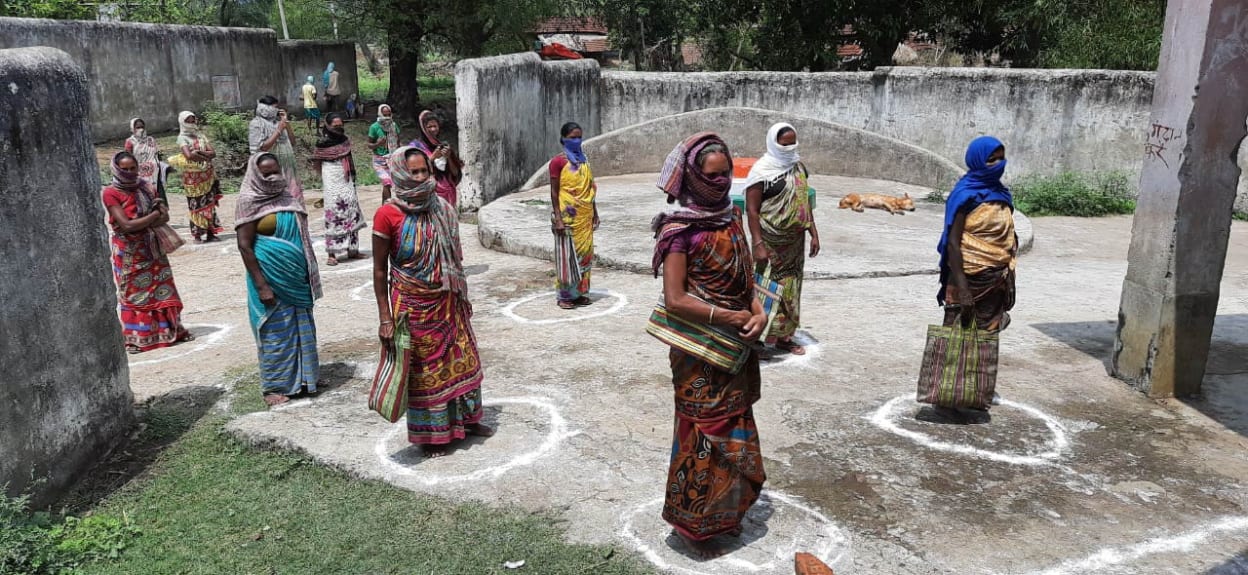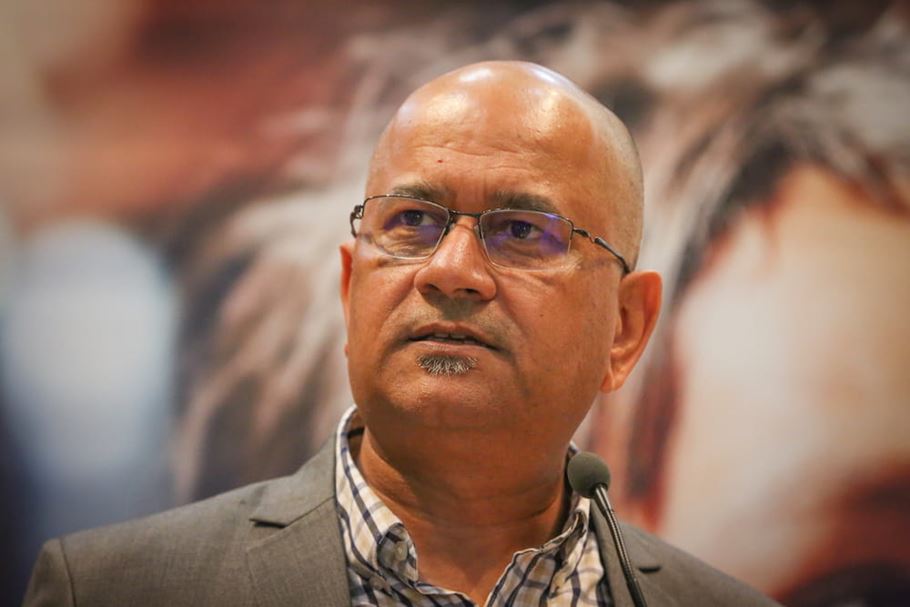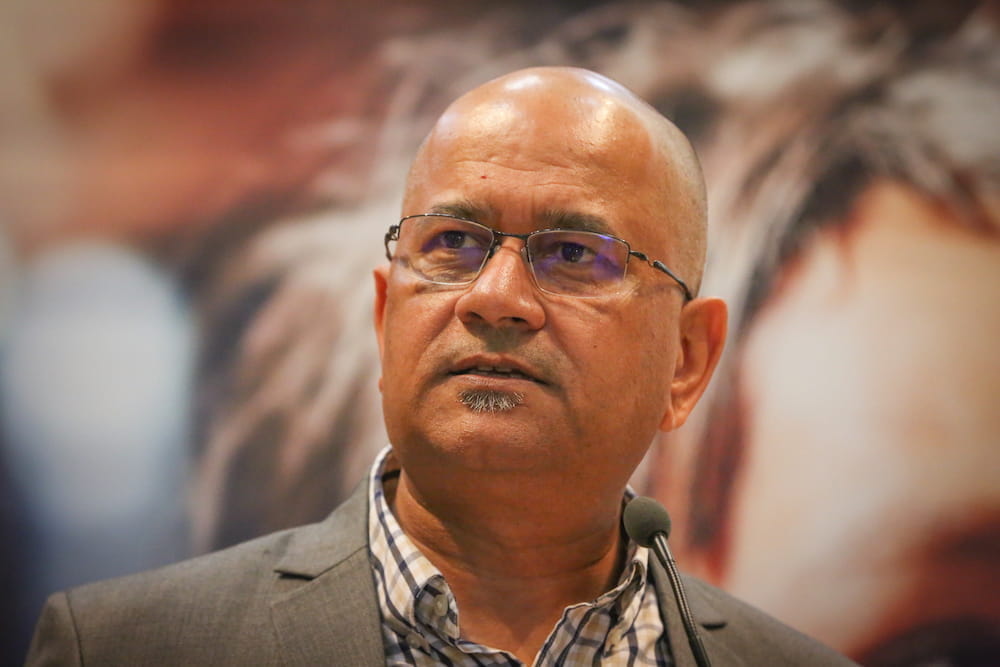Fighting for hope in India as it faces the brokenness of humanity
Written by Tearfund | 05 Aug 2020



Written by
Written by Tearfund
As monsoon rains continue to lash Bangladesh, India and Nepal, they bring with them severe flooding and landslides. An estimated 4 million people have been forced to flee their homes since the rains began in June.
Tearfund’s News Editor, Andrew Horton, spoke with Prince David, Tearfund’s Country Director for India, about the floods. This December marks 25 years since Prince started working for Tearfund. He’s seen many disasters in his time, but this year – with cyclones, flooding and coronavirus – it feels, for him, like the most tragic and difficult so far.
Despite the catastrophes engulfing south Asia, he’s committed to fighting for people living in poverty and refuses to give up hope.
Andrew began by asking Prince if he could give us some background to the floods and how frequent they are:
Floods in the Indian regions of Assam and Bihar, and across south Asia, are common. They happen every year – as far back as I can remember. They come after monsoon rains which usually start in July and go right through to September. Each year the Brahmaputra River breaks the side of its banks and floods the communities. So people that live there are familiar with it.
‘'I know a sense of hope that undergirds me – a hope that holds me. My hope and my resilience is in the strength of the Lord.'’
How bad do the floods get?
It’s particularly bad for people who are poor and are unable to have permanent homes or sustain their businesses. Some parts of Bihar have houses which are quite temporary, and so the floods affect them the worst. And it's not just the floods, it’s the loss of businesses and loss of income. Then the diseases follow, such as cholera.
Do people just accept that this is happening every year? Do they take it as the norm?
Each year there is fear, there is anxiety in these communities. It's absolute desperation. And the challenge is they are reluctant to relocate themselves because that's where they have lived for generations.
For the communities that we work with, we have had a long term relationship. Practically all of them have expressed a state of helplessness. When July comes, monsoons begin and there is fear and anxiety. In fact, sometimes communities or families are known to migrate to other parts of the country during that part of the year looking for work and alternate sources of income. So they definitely don’t take it in their stride. But people ask, ‘What is it going to be like this year? Will it be worse?’
What does Tearfund do to help people cope with the flooding each year?
When I first joined Tearfund nearly 25 years ago, one of the first projects we visited was a project that helped people to cope – to be resilient to the floods. I know these programs have been very successful and have continued to develop.
We begin by working with communities to recognise how well they cope with frequent disasters. Then people start investing in building safer buildings, they start saving money and even set aside extra stores of grain.
Over time, people in these villages start small businesses and gradually they see them flourish. People are able to take responsibility for their own development and they no longer rely on aid.


Prince David (Photo: Stephen McCracken/Tearfund)
Do people think the floods are because of the climate crisis?
People may not call it that, but they certainly know that the weather patterns are changing. For example, the monsoon rains should normally start somewhere from the third week of July but this year we've already had rains way back in early June. When the rains arrive early they damage crops in the fields.
With a sudden coronavirus lockdown in March and Cyclone Amphan in May, these floods must have compounded the misery for many people?
Yes, these floods are another beating for people here. If you include the cyclone and the coronavirus lockdown, that is devastating for communities.
The lockdown was announced in the evening at 8pm on 24 March, with four hours notice before it began. So the next morning work stopped, transport stopped – many people were left stranded. Families couldn’t pay their rent and had to leave their homes.
It was just a devastating scene to see people on the streets. And then, soon after this, the cyclone and floods hit. It was just an absolute disaster.
With all this tragedy, how does this make you feel as you lead Tearfund’s work in India today?
In the 24 years that I've worked for Tearfund, I've seen a lot of disasters. I have seen earthquakes. I have seen cyclones. I have seen floods, and I have even seen tsunamis. These happen and communities gradually start recovering. But this one is an utter onslaught.
We’ve worked hard to build resilience in communities, so people are ready to face disasters. But all the change we’ve seen and believed in is now completely at risk of being destroyed.
The sense of wellbeing in communities is now gradually decreasing. And I think that is when bad things happen.
Many people have been forced to take out loans from ‘loan sharks’. This is dark because these ‘sharks’ dominate these communities, holding them down with high interest rates. It's a kind of structured slavery, where a father takes a loan and their children are paying it back for 20, 30 or 40 years because interest rates are so high.
And there are more cases of human trafficking, particularly of children. When communities have nothing left, their children become a commodity to sell. This is so dark, so hard to believe that a father and mother would let their child go with a trafficker at something like £20 or £30.
Where do you think God is in all this?
I have been asking that question myself: ‘Lord, are you in this? I thought you were giving us such wonderful success and we were seeing that in all our work.’
So one of the lessons I've learned is this: while we may try and feel that things are successful, the world is such a changing place. And the brokenness of humanity continues to hit us hard – the consequences of all that has been done to the environment that we live in.
As a person who believes in the Lord as my Saviour and God as sovereign over all things – nothing happens without his permission – I know the Lord is always with us and continues to provide for us.
Yes, we have seen devastation. Every good thing that was done is breaking down. But at the same time I know a sense of hope that undergirds me – a hope that holds me. My hope and my resilience is in the strength of the Lord. And that is not going to change.
I know my Lord reigns and I will continue to do what he has called me and my team to do. The Lord doesn't change even though I don't see an end to these challenges at the moment.
What can Tearfund supporters do to help Tearfund’s work in India?
Please pray for us, more than anything else. You've been gracious with your resources but please be generous with your prayers because if anything will change the scenario it is your prayers.
We are called to stand in the gap. Not just as doers but also as the ones who God has blessed. So please join with us in standing in that gap and pray not just for us but for communities everywhere.
Secondly, pray that Tearfund and our partner organisations can help people to bounce back from all these crises, and that a community spirit will be restored.
Finally, pray that we don't lose hope. Pray that my team doesn't lose hope, because we're not seeing positive results at the moment.
Share this page
Share this page to spread the word and help support those in need.

Get our email updates
Learn about our work and stay in touch with Tearfund. Hear about our news, activities and appeals by email.
Sign up now - Get our email updates





.png)
